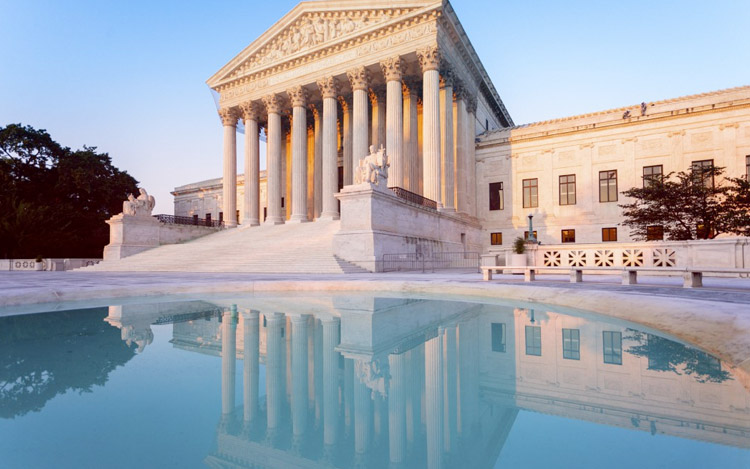The Supreme Court sent a soon-to-be-historic message that states should have the power to decide on cannabis law by refusing to hear Nebraska and Oklahoma’s lawsuit against cannabis-friendly Colorado earlier this week.
This is great news for the cannabis industry. Here’s what the Supreme Court’s decision means for the green rush.
1. Cannabis law is left up to the states – for now
Nebraska and Oklahoma’s state attorneys alleged that illegal cannabis was being exported over their state borders on a scale they compared to a “drug cartel,” violating the federal Controlled Substances Act.
Nebraska Attorney General Bruning and Oklahoma Attorney General Scott Pruitt wrote in their complaint that Colorado’s Amendment 64, which allows medical and recreational cannabis, is “devoid of safeguards to ensure marijuana cultivated and sold in Colorado is not trafficked to other states, including Plaintiff States.”
But the Supreme Court justices turned away the case with a 6-2 vote.
Though Colorado Attorney General Cynthia Coffman is not on Team Legal Cannabis, she supported the court’s decision to uphold states’ rights. “I’m proud of the legal team in my office that successfully defended this complicated case,” Coffman said in a statement. “I continue to believe that this lawsuit was not the way to properly address the challenges posed by legalized marijuana. But the problems are not going away. Although we’ve had victories in several federal lawsuits over the last month, the legal questions surrounding Amendment 64 still require stronger leadership from Washington.”
With the Supreme Court deciding not to lay down a federal decision on legal cannabis, states that already allow for medicinal and/or recreational use can continue to operate their cannabis programs as they have been. Even better, it buys time for other states to legalize medical cannabis, and for the industry to continue to develop nationally.
2. The feds don’t see a problem
Prior to the Supreme Court’s decision (which the court did not elaborate upon), a federal release authored by U.S. Solicitor General Donald Verrilli asked the Supreme Court to reject Nebraska and Oklahoma’s complaint and let Colorado’s Amendment 64, which allows for medical and recreational cannabis, to stand.
Verrilli wrote that Nebraska and Oklahoma could not prove that Colorado’s cannabis law encouraged illegal activity, and that third-parties were at fault when it comes to the illegal cannabis crossing their borders.
“Nebraska and Oklahoma have therefore not sufficiently alleged that Colorado has inflicted the sort of direct injury to their sovereign interests warranting an exercise of original jurisdiction. At most, they have alleged that third-party lawbreakers are inflicting those injuries, and that Colorado’s legal regime makes it easier for them to do so,” Verrili wrote.
3. The industry gained powerful (and somewhat surprising) allies
The complaint filed by Nebraska and Oklahoma’s state attorneys prompted many lawmakers to choose a side. Among them were representatives of the complaining states.
Oklahoma Representative Mike Ritze and six other lawmakers penned an open letter to Oklahoma Attorney General Scott Pruitt defending states’ rights as a conservative value.
In a release with the letter, Ritze said “Our Founding Fathers intended the states to be laboratories of self-government, free to tinker and experiment with different ideas.The founders, from Jefferson to Madison, were also strong proponents of states nullifying unconstitutional federal actions. If the people of Colorado want to end prohibition of marijuana, while I may personally disagree with the decision, constitutionally speaking, they are entitled to do so.”
This decision prompted a celebration among cannabis industry professionals. Mason Tvert, spokesman for the Marijuana Policy Project, said “These guys are on the wrong side of history. They will be remembered similarly to how we think of state officials who fought to maintain alcohol prohibition years after other states ended it.”
